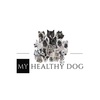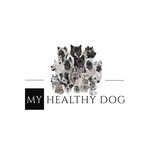What to Look for When Choosing a Vitamin Supplement for Your Dog
22 de Novembro de 2024, 8:18 , por My Healthy Dog - 0sem comentários ainda | Ninguém está seguindo este artigo ainda.Choosing the right vitamin supplement for your dog is crucial for their overall health and well-being. Not all supplements are created equal, so it's important to consider factors such as the dog's age, breed, health condition, and the specific vitamins and nutrients needed. Here's a guide on what to look for when selecting a vitamin supplement for your pet.Click here for more information best dog vitamin
1. Understand Your Dog's Specific Needs
Before selecting a vitamin supplement, it's essential to understand your dog's individual needs. Factors such as their age, size, breed, and activity level can influence the type and amount of vitamins required. Puppies, for example, need vitamins that support growth and development, while senior dogs may require supplements for joint health or to support digestion.
If your dog has any pre-existing health conditions, consult with your veterinarian to ensure the supplement is suitable. For instance, dogs with arthritis may benefit from a multivitamin containing glucosamine and chondroitin, while dogs with digestive issues might need extra fiber or probiotics.
2. Choose a High-Quality Brand
Quality is one of the most important factors when selecting a vitamin supplement. Look for brands that have a reputation for producing high-quality, safe products. Reputable manufacturers often have stringent quality control processes and use high-quality ingredients. Additionally, check for certifications such as the National Animal Supplement Council (NASC) seal, which indicates that the product has undergone rigorous testing for safety and efficacy.
Avoid supplements from brands with unclear ingredient lists or unverified claims. High-quality brands are transparent about the sources of their ingredients and their manufacturing processes.
3. Check the Ingredients List
Review the list of ingredients carefully to ensure that the supplement contains the vitamins and minerals your dog needs. Key nutrients to look for include:
- Vitamin A for skin and coat health
- Vitamin B Complex (B1, B6, B12) for energy metabolism and nervous system support
- Vitamin D for bone health and immune function
- Vitamin E for immune health and antioxidant support
- Omega fatty acids for skin, coat, and joint health
Some supplements also contain additional ingredients like probiotics for digestion, glucosamine for joint health, or antioxidants to fight inflammation.
Be cautious of supplements with fillers, artificial colors, or preservatives, as these may not be beneficial to your dog's health and could cause adverse reactions. Opt for supplements with natural, whole-food ingredients whenever possible.
4. Tailor to Your Dog's Size and Age
Dog vitamin supplements often come in formulations tailored to the dog's size (small, medium, large breeds) and age (puppy, adult, senior). Puppies have different nutritional needs than older dogs, so look for age-specific supplements that cater to the stage of life your dog is in.
If your dog is large or small, select a supplement formulated for their size. Larger breeds may require a different ratio of nutrients, while small breeds may need more concentrated doses of vitamins to meet their needs.
5. Consider the Form of the Supplement
Dog vitamins come in various forms, including chewable tablets, capsules, powders, and liquids. Choose a form that is easy for your dog to consume. Many dogs prefer chewable tablets, especially if they're flavored, while others may be more accepting of liquid supplements mixed into their food. Some pets might struggle with swallowing pills, so it's essential to select a form that fits their preferences and ensures they'll consume the supplement regularly.
6. Look for Added Health Benefits
Some vitamin supplements offer more than just basic nutrients. Many products contain additional health-boosting ingredients like antioxidants, omega-3 fatty acids, or joint support compounds such as glucosamine and chondroitin. If your dog is suffering from specific health issues, such as joint pain, skin problems, or digestive issues, look for supplements that target these concerns.
For example, omega-3 fatty acids (from fish oil or flaxseed) can help with skin and coat health, while glucosamine and chondroitin support joint health and mobility.
7. Consult Your Veterinarian
Finally, before adding any supplement to your dog's diet, it's always a good idea to consult with your veterinarian. They can help you determine if your dog requires a multivitamin or specific supplements based on their health status and diet. Your vet can also recommend the correct dosage and ensure that the supplement won't interact negatively with any medications your dog may be taking.
8. Be Mindful of Dosage
Each supplement will have a recommended dosage based on your dog's size, age, and health needs. Over-supplementing can lead to toxicity or cause side effects, so always follow the dosage instructions provided on the packaging or by your vet. It's better to start with a lower dose and gradually increase it if necessary.
Conclusion
Choosing the right vitamin supplement for your dog involves careful consideration of their specific health needs, the quality of the product, and the type of supplement that best suits them. Always prioritize high-quality, natural supplements that cater to your dog's age, size, and health concerns. By selecting the right vitamins, you'll be helping your dog live a healthier, more vibrant life.
Contact Us
My Healthy Dog
United States
Phone No: +1 800-998-1072
Email ID: [email protected]


0sem comentários ainda
Por favor digite as duas palavras abaixo